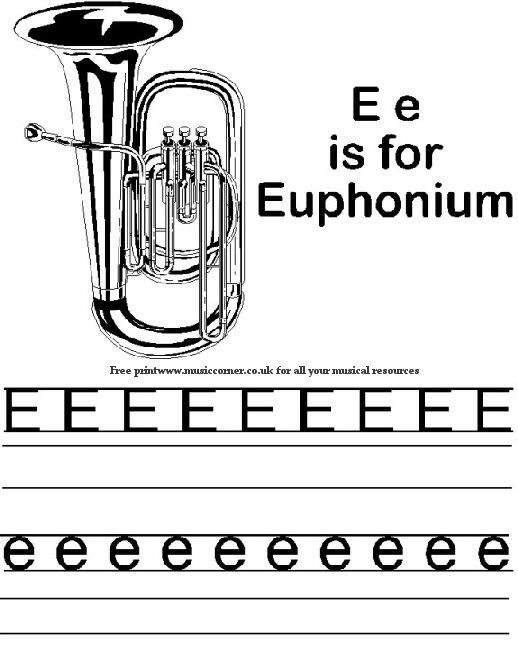TonyTuba wrote:What do you mean by musically interchangeable? I am not sure I get what you mean.
I used to think baritone and euphonium were the same instrument, and in American terminolgy, we use the term interchangeably, but this is not correct. Baritone Horns and Euphoniums are distinctly different instruments, and it is time we recognize that and educate about it. They sound different, and have a different role. Most kids are playing what we call euphoniums now days. Let's not call them baritones anymore, unless it is a true baritone. call a horse a horse, some might say.
Tony, the terms altohorn, tenorhorn, and baritone horn are used differently in nearly every country. When England and Germany agree (which they don't), then perhaps we'll learn how to tag along.
But when the kid pulls out that older band music, and it says "Baritone B.C." in the upper left corner, is he supposed to put his Besson 967 down and pick up a Besson (English-style) baritone? If he does, he really will change the intended character of the music.
I have a Reynolds baritone from 1937. It has a bore in the .57 range, a 10.5" bell, and fairly fat outer branches. My Besson euphonium has a bore of .58", a bell of 11", and slightly fatter outer branches. Are those different instruments? The first would have been called a baritone by anybody in the U.S. at the time it was made.
By the same token, I have a Miraphone 186 tuba that has a bore of .77, a bell of 16.5", and a distinctly tall and narrow shape. I also have a Holton BB-345, which has a bore of .75", a bell of 20", and easily 50% more volume of air than the Miraphone. They are both called tubas. In fact, they are both contrabass tubas, and we have to go yet another level down the taxonomy (6/4 versus 4/4) to get at the differences. Those old band parts call them Bass Horns, and that to me is completely descriptive. Bass Horn = Tuba and Tuba = Bass Horn.
Given that the English baritone with its trombone bore and 8" bell is only used in specialized groups in the U.S. (and no band part is written for it outside that specialty area), I would think it fair to let it have the special name, such as English Baritone. And you have to do that anyway if you want to communicate, even to brass players outside the BBB tradition. You can't just say it's a baritone, because they'll picture a euphonium in their mind. You have to say it's a small, English-style baritone.
By musically interchangeable, I mean that I can use my old Reynolds for a "Baritone B.C." part and very few in the audience would be able to see or hear any difference between that and my Besson euphonium. Both are so much more alike than either is like, say, a rotary oval euphonium that trying to distinguish between with separate terms seems pointless.
But I have also seen where the word "euphonium" is being used to put others down just as much as "BBb vs. CC" is being used to put others down among school-age kids (my nieces being my examples of note). "He's just a BBb player, while I have a CC tuba" "He has that old baritone, but I have a euphonium." "When you get better, we'll move you up to a euphonium." (Mantia must roll in his grave when he hears that one.) "All CC tubas sound and play better than BBb tubas" And so on. A Willson 2950 is no more different from my old Reynolds than my Holton is from my Miraphone. And my old Besson euphonium is probably closer in sound to the Reynolds than it is to the Willson.
Rick "who thinks the instruments define the terms, not the other way around" Denney







